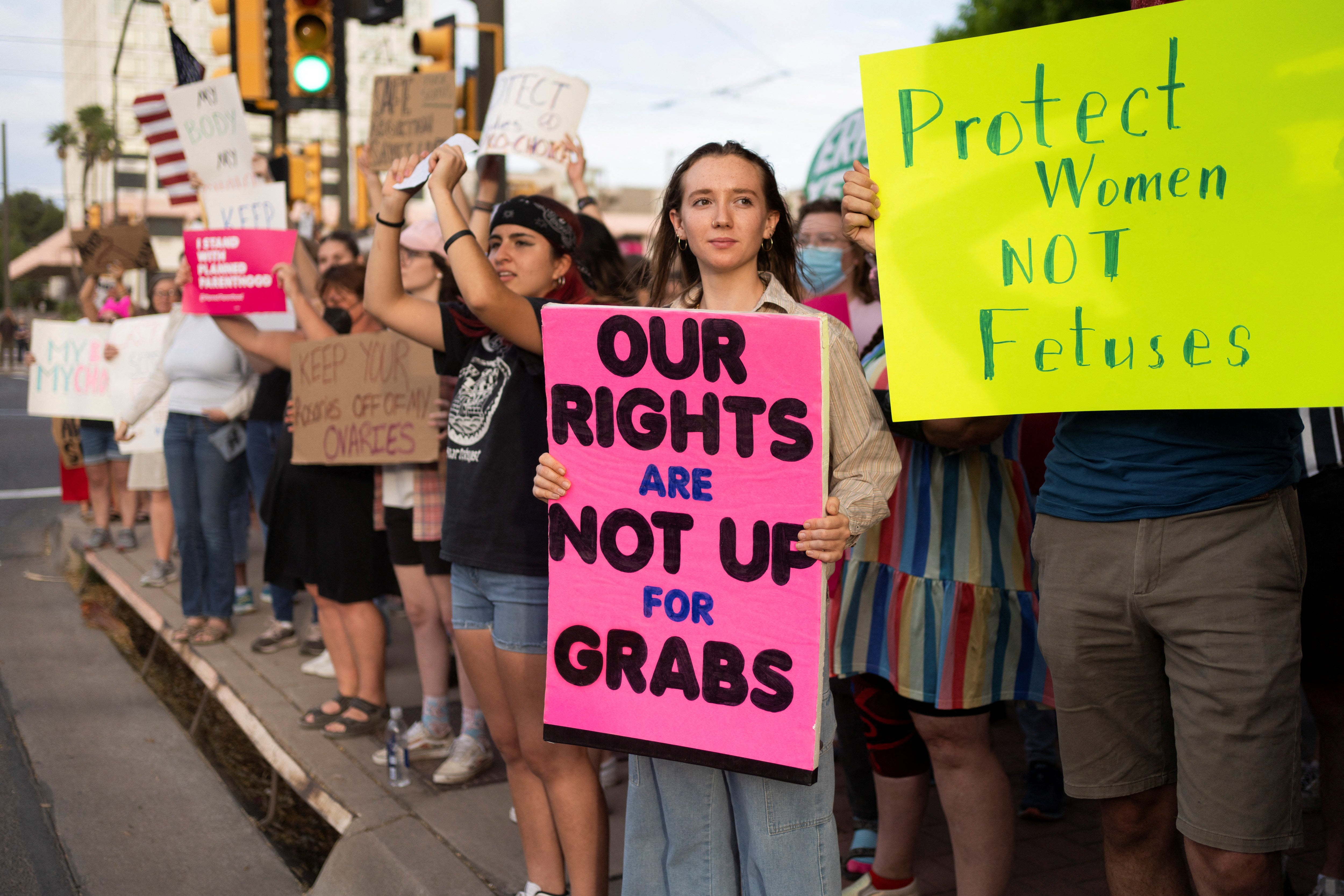I grew up in a country where abortion was illegal – this is why Roe v Wade must be preserved at all costs
Ireland’s constitutional prohibition stripped women like me of access to reproductive healthcare. It scarred us. It damaged us. It systematically denied us the freedom to choose


Your support helps us to tell the story
From reproductive rights to climate change to Big Tech, The Independent is on the ground when the story is developing. Whether it's investigating the financials of Elon Musk's pro-Trump PAC or producing our latest documentary, 'The A Word', which shines a light on the American women fighting for reproductive rights, we know how important it is to parse out the facts from the messaging.
At such a critical moment in US history, we need reporters on the ground. Your donation allows us to keep sending journalists to speak to both sides of the story.
The Independent is trusted by Americans across the entire political spectrum. And unlike many other quality news outlets, we choose not to lock Americans out of our reporting and analysis with paywalls. We believe quality journalism should be available to everyone, paid for by those who can afford it.
Your support makes all the difference.Shame, sin, and clandestine crisis pregnancy support numbers scrawled on public toilet walls were all I knew about abortion until the dying days of my teens.
Ireland’s constitutional prohibition, which effectively placed a blanket ban on terminations – from 1983, until the country voted overwhelmingly to overturn it in 2018 – stripped women like me of access to reproductive healthcare; healthcare that is viewed as a fundamental human right in dozens of countries around the world. It scarred us. It damaged us. It systematically denied us the freedom to choose.
Against the backdrop of this experience, it’s little surprise that the leaked draft ruling from the US Supreme Court to overturn Roe v Wade sent shivers down my spine. Such a decision, if it comes to pass, would be tantamount to the bleakest regression in women’s rights the United States has ever seen.
It is impossible to quantify the pain wrought by the Eighth Amendment to the Irish Constitution before it was repealed four years ago, after a bitter referendum campaign that thrust the country into febrile chaos marked by city-wide protests and shrieking televised debates.
Images of activists from both sides snarling at each other outside the Supreme Court in Washington DC this week brought back distressing memories of a time when posters plastered with graphic images of late-term abortions adorned the streets of my hometown.
“Abortion passengers: turn back now! We will reimburse the cost of your flight.”
These were the words a Midlands “pro-life” organisation lobbied to festoon the walls of Dublin airport with back in 2017 as the fight for reproductive rights ramped up ahead of the Irish vote. They professed to care deeply for Ireland’s unborn, but would wash their hands of vulnerable young mothers as soon as the child arrived.
The Ireland of my early years told women experiencing unplanned and crisis pregnancies that they were the sole orchestrators of their sad situation; the onus lay squarely on them, the shame and stigma theirs alone to bear.
The Eighth robbed us of so much. Abortion was rarely spoken about, not even among my friends when it was safe to do so, away from the Catholically conditioned opinions of our elders and teachers.
At school, the official line was deafening silence. In fact, the official line stopped short of any meaningful conversation about contraception at all – no instruction, guidance or discussion would be entertained on the subject because it “stood contrary to the ethos of both school and state”.
It was reproductive education without any education on reproduction. We grew up in blissful ignorance of abortion, and grew up frightened of the very word itself: generations of women deprived of the right to decide their own future unless they had the money to travel abroad.
I studied law in all its forms for three years. I wrote reams of legal papers on issues including domestic violence and sexual consent, which called for repeated references to the Eighth. I vividly recall my final year family law exam, sitting in the yawning chasm of a university sports hall regurgitating the constitutional verse: “The State acknowledges the right to life of the unborn, and, with due regard to the equal right to life of the mother, guarantees in its laws to respect, and as far as practicable, by its laws to defend and vindicate that right.”
Shrouded in this archaic language and legal jargon is the state-sanctioned stance that from the moment of conception, the potential existence of an unviable foetus is equal to that of the living, breathing mother who carries it. This madness was Ireland’s reality until four short years ago, and for those touched by it, the scars run deep.
Overturning Roe v Wade, which is likely to trigger a total ban on abortion in around half of all US states, will not stop abortions – it will stop safe abortions and block access to essential support services in the aftermath. It will force countless women to travel interstate or overseas for fundamental healthcare, a banishment mná na hÉireann (Irish women) know all too well.
To keep up to speed with all the latest opinions and comment sign up to our free weekly Voices Dispatches newsletter by clicking here
For 35 years, from the moment the Eighth was ratified in 1983, my country exported its vulnerable daughters instead of providing them with basic healthcare. The laws foisted on us due to the relationship between church and state dictated that these women were not Ireland’s problem. They were unsavoury individuals, devoid of any maternal instinct who should be sent across the water to the UK, Europe or anywhere else – just not on our doorstep.
Blanket bans on abortion disproportionately impact minorities and women on low incomes who lack the agency to make long and expensive journeys to access requisite services. The idea that this fate lies ahead for millions of women in the US is unbearable, and must be prevented at all costs.
If you strip back the venom surrounding abortion debate, you’ll find thousands of women with thousands of unique stories and hardships, thousands of explanations and thousands of reasons for the choices they made. No one should be forced to continue a pregnancy against their will. The US now faces a fierce battle to ensure that doesn’t happen.
Join our commenting forum
Join thought-provoking conversations, follow other Independent readers and see their replies
Comments